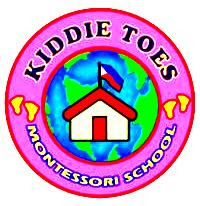by Toni Tiu
 I grew up in a house full of books. From finance to romance, there was always something to read. We are a family of book lovers, so naturally I hoped from the very beginning that my baby becomes a lover of books as well. With the way he interacts with his books now, I can confidently say he is a book lover too.
I grew up in a house full of books. From finance to romance, there was always something to read. We are a family of book lovers, so naturally I hoped from the very beginning that my baby becomes a lover of books as well. With the way he interacts with his books now, I can confidently say he is a book lover too.Encouraging a child to read can start at infancy. A month after I gave birth, I was desperate to catch up on my reading. Between taking care of the baby and trying to catch up on lost sleep, there was hardly any time for a leisurely read. That changed when I began a bedtime routine with my infant. Before tucking him in, I’d take out a book and read aloud a few chapters to him. Not only was it a way to familiarize him with my voice, it helped me catch up on my reading. I think reading aloud to him even when he was just a month old was a good start in establishing a healthy relationship with reading. He is now 11 months old and enjoys it very much when books are read aloud to him. Sometimes he babbles while I read to him. It seems like he’s reading along with me. I love sharing a book with him!
There is a wealth of good children’s books in stores that it’s a challenge picking just a few out. Books with big, bold shapes and bright colors are fascinating to a baby, so I choose books with these in mind. I find that they hold my baby’s attention longer. He carefully observes the details on each page before moving on to the next.
Board books are my current preference. It’s easier for the baby to turn the pages on his own. When he was a few months old, I’d sit him on my lap and turn the pages for him while reading aloud. Over time he would learn how to flip the pages himself. In the beginning he used his closed fist to try turning the page, then his open hands. Both times I would help him. Today, he uses his fingers and turns the pages on his own. I think his pincer grasp (using the thumb and index finger to pick up small objects) developed because of the page turning. I’m wary of books with paper pages for now because the baby crumples up the pages anyway, and he could be prone to paper cuts. Board books are friendliest for my little one.
Another way to build a child’s love for reading is to be conscious of what stage he’s in. My baby is at the phase where he is fascinated with textures, so he has some books that stimulate his sense of touch. Books that have little tags of a silky, cottony or furry texture intrigue him. Other ways to encourage reading are choosing books that reflect his interests, listening to audio books, and sharing books you yourself loved as a child.
I think the best way to raise a book-loving baby is as simple as showing him that you enjoy reading too. Whether it’s the newspaper, a magazine or a novel, if your child sees you reading he’ll be motivated to read as well. So far that’s working out fine for me and my son. He is growing up surrounded by books and by people who enjoy reading them.
When I see my baby pick up a book and go through the pages with such concentration, my heart sings. I love how he is so captivated by the pictures. I love how right now letters are just pictures and patterns to him, but eventually he’ll learn how they form words. Then words will unlock worlds, and my book-loving baby will find even more reasons to keep on reading.
+++
Bookworm Toni Tiu never leaves home without a book. Now she doesn’t leave home without two books – one for her and one for the baby. Visit her personal blog at WifelySteps.com.
Source:
http://ph.yfittopostblog.com/2010/08/21/raising-a-book-lover/


